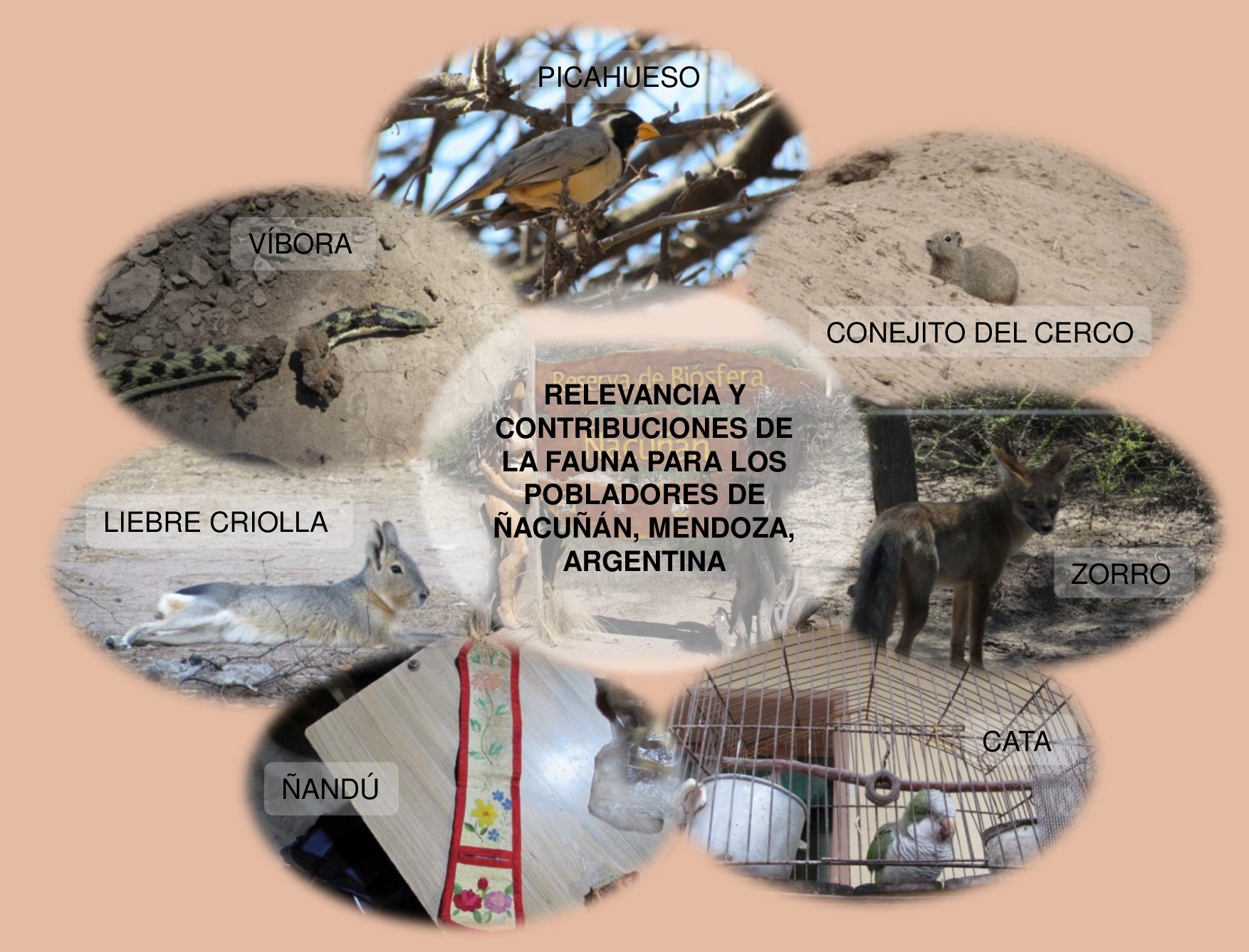An approach to the salience and contributions of wildlife for local people in Ñacuñán, Mendoza, Argentina
DOI:
https://doi.org/10.31055/1851.2372.v57.n3.37250Keywords:
ethnozoology, local ecological knowledge, Monte, perceptions, protected area, usesAbstract
Background and aims: Ecological knowledge of wildlife shows that species are not equally important to human communities. The present work aims to identify the ethnospecies of higher cognitive salience to local people, and to explain their salience based on the cultural value they are assigned.
M&M: The Sutrop’s cognitive salience index of each ethnospecies and its statistical significance were calculated from fauna free lists. Descriptive statistical and qualitative analysis of uses and perceptions was carried out through the nature's contributions to people categories, using interviews and observation.
Results: The free lists recorded a total of 100 ethnospecies, corresponding to birds (58%), mammals (18%), insects (13%), reptiles (7%), and amphibians and arachnids (2% each). Positive and negative contributions were detected in thirty-eight ethnospecies, although only eleven were statistically significant. Among the positive ones, material contributions stand out, followed by non-material and regulating ones. Among the negative, contributions were linked to damage to domestic animals and dangerousness. Additionally, relational and non-anthropocentric values appeared.
Discussion and conclusions: Among relevant ethnospecies, those with the greatest number of positive contributions stand out. Also some related to negative perceptions for being responsible for attacks on domestic animals, and their dangerousness. The results provide inputs for policy makers and to re-think the links of local people with the fauna.

Downloads
Published
Issue
Section
License
Copyright (c) 2022 María Carolina Moreno, Mariana G. Cannizzo, Laura Torres, Claudia M. Campos

This work is licensed under a Creative Commons Attribution-NonCommercial-NoDerivatives 4.0 International License.
Provides immediate and free OPEN ACCESS to its content under the principle of making research freely available to the public, which fosters a greater exchange of global knowledge, allowing authors to maintain their copyright without restrictions.
Material published in Bol. Soc. Argent. Bot. is distributed under a Creative Commons Attribution-NonCommercial-ShareAlike 4.0 International license.




